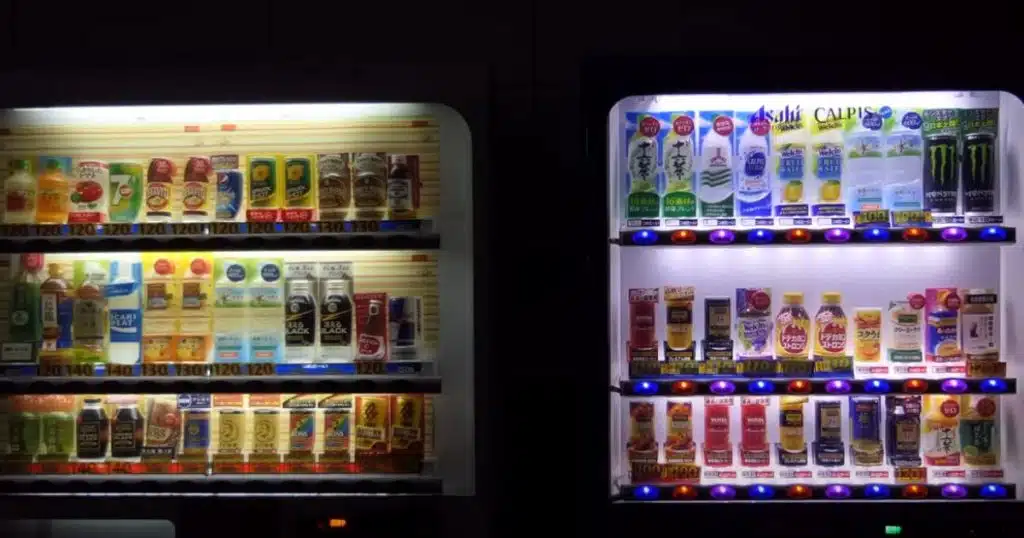As an Amazon Associate I earn from qualifying purchases.
Starting a vending machine business can be lucrative and relatively low-maintenance, but before setting up shop, you’ll need to secure a vending machine permit. Whether you’re new to the industry or expanding, understanding the costs and steps involved is essential for legal compliance. So, how much is a vending machine permit, and what are the exact steps to obtain one?
In this article we will discuss the steps in detail and also discuss the Types of Fees and Average Costs, Renewals and Compliance, the type of problems you may have if you don’t have a permit, let’s get started.

What is a Vending Machine Permit? And Why is it Necessary
A vending machine permit is a license required by local or state authorities for the legal operation of vending machines in public or private locations. This permit is often necessary, particularly for machines selling food or beverages, to ensure compliance with public health and safety standards.
By requiring permits, local governments can monitor vending machines to protect consumers from potential health risks, such as expired or unsanitary products, and to regulate the businesses operating them. The permit process often includes inspections and may involve an annual fee. Having a vending machine permit not only helps business owners avoid fines or legal issues but also reassures customers of the machine’s compliance with safety and hygiene regulations.
Research Local and State Requirements
The cost of a vending machine permit can vary widely depending on local and state regulations. To determine specific permit fees, it’s essential to Research Local and State Requirements. Here are the main steps to consider:
Contact Local Authorities: Start by reaching out to your city or county clerk’s office, as most vending machine permits are regulated at the local level. In some cities, the cost may range from $10 to $250 per machine annually, depending on factors such as machine type (e.g., food, beverage, or other items), location, and the number of machines operated.
State Health Department: If your machines sell perishable items, your state health department may require an additional food handling permit or inspection, which could add extra costs. States typically charge an annual fee for food-based vending permits, often ranging from $50 to $200.
Additional Compliance Fees: Some states may also require sales tax permits or business licenses, with fees depending on the total revenue or location specifics.
Types of Fees and Average Costs
The cost of a vending machine permit can vary based on location, type of product dispensed, and other local requirements. Here’s an overview based on Types of Fees and Average Costs:

- General Business License Fees: Many cities require a general business license for vending machine operators, which typically ranges from $50 to $150 annually. This fee may be affected by the size or scale of the operation.
- Vending Machine Permit Fees: A specific vending permit for each machine might cost between $10 and $250 per machine annually, depending on the type of products sold and location. Public locations or high-traffic areas may carry higher fees.
- Health and Safety Inspection Fees: For machines dispensing perishable food or beverages, additional health department inspections and permits may cost from $50 to $200 annually. These fees ensure the machine meets local health standards and safety codes.
- Sales Tax Permit Fees: States that impose sales tax may require a sales tax permit or license. While this fee can vary, it’s often a one-time cost between $20 and $100. However, operators are responsible for remitting sales tax on all items sold.
- Fire Department Permit Fees: In some regions, vending machines located in enclosed or high-traffic areas need fire safety compliance approval, costing approximately $50 to $150 depending on local fire code requirements.
- Additional Location-Based Fees: Special fees may apply for vending machines in government buildings, schools, or other regulated areas, with costs that can range from $25 to $100 based on location-specific policies.
By understanding these fees, vending machine operators can better prepare for the startup and ongoing costs of maintaining legal compliance.
Steps to Obtain a Vending Machine Permit
1. Visit your local city or county website to find specific permit requirements.Some states have online portals where you can apply for vending licenses directly.
2. This is typically the first step to legitimize any business. Your local city hall or municipal office can help guide you through the process. Fees are often based on the size and type of your business.
3. If you’re selling food or beverages, visit the health department’s website to apply for the necessary permits. You may need to schedule an inspection to ensure the machine complies with health codes.
4. Register with your state’s tax department if sales tax applies to vending machine products in your area. Many states offer online portals to simplify the process.
5. Contact the zoning board if you’re planning to place your machine in a specific location, such as near schools or parks, which may have additional restrictions.
State Permit for Machine Vending
State Licensing for Machine Vending involves obtaining specific licenses and permits that allow vending machine operators to legally conduct business within a state.To get a vending machine permit in Texas, California, and Florida, follow these key steps:
Texas
- Register for a Sales Tax Permit with the Texas Comptroller (required for all machines).
- Obtain a Health Permit from local health departments for food/drink machines.
- Check local City or County Business Licensing requirements.
- In Texas, a vending machine permit costs approximately $15 per machine annuall.
California
- Enroll to obtain a Seller’s Permit with the California Department of Tax and Fee Administration.
- Apply for a Health Permit for food/beverage machines through county health departments.
- Secure a Local Business License for each operating city/county.
- Cities or counties may charge their own licensing fees, ranging from $50 to $100 per machine annually.
Florida
- Register for a Sales Tax Permit via the Florida Department of Revenue.
- Acquire a Health Permit from the Florida Department of Agriculture for operating food vending machines.
- Check for Local Licensing requirements based on machine locations.
- Operators must register with the state and pay a $30 fee per machine each year.
Renewals and Compliance
The cost of a vending machine permit typically includes Annual Renewal Fees that vary by location, machine type, and product offerings. Here’s an outline of what to expect:

Basic Renewal Fees: Many cities or counties charge between $10 and $250 annually per machine for renewal. The amount depends on factors like location, machine type, and whether it’s on public or private property.
Food and Beverage Machine Renewals: Machines dispensing perishable items often incur higher renewal fees to cover regular health inspections, ranging from $50 to $200 annually. This ensures compliance with local health standards.
Additional Compliance Fees: Some locations add extra renewal costs for safety compliance (e.g., fire department requirements), which may add $50 to $150 to the annual fees.
Sales Tax Reporting Fees: If applicable, states may charge a small annual fee for sales tax reporting or require periodic filings, though these costs vary by jurisdiction.
Start Your Business with Confidence
If you have a vending machine permit, you’re already on the right path to starting your business with confidence. A permit is not only a legal requirement but also a powerful first step that shows your commitment to operating within regulations, which can enhance trust with property managers, customers, and regulators alike. Here’s how you can confidently launch and grow your vending machine business now that you have this key document in place:
Target High-Traffic Locations: Use your permit to secure prime locations like schools, malls, or offices, maximizing foot traffic and potential sales.
Choose In-Demand Products: Stock items based on location demand and permit regulations, selecting popular snacks, drinks, or healthy options.
Regular Maintenance: Maintain machines by keeping them clean, well-stocked, and in working order to boost customer satisfaction and strengthen business reputation.
Effective Promotion: Use local advertising and social media to attract attention to your machines, increasing engagement and sales.
Expand Strategically: Leverage performance data to identify new locations, add machines, or introduce digital payment options.
Build a Growth Plan: Use your permit as a foundation to expand confidently, scaling locations and product offerings as demand grows.
Amazon and the Amazon logo are trademarks of Amazon.com, Inc, or its affiliates.
Leave a Reply